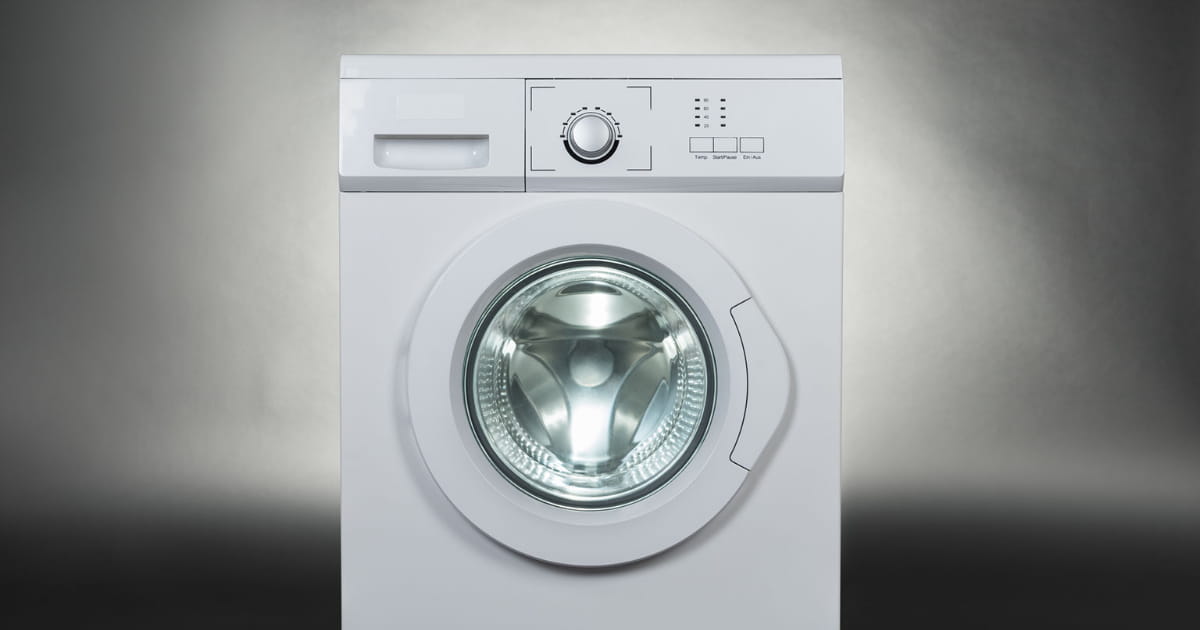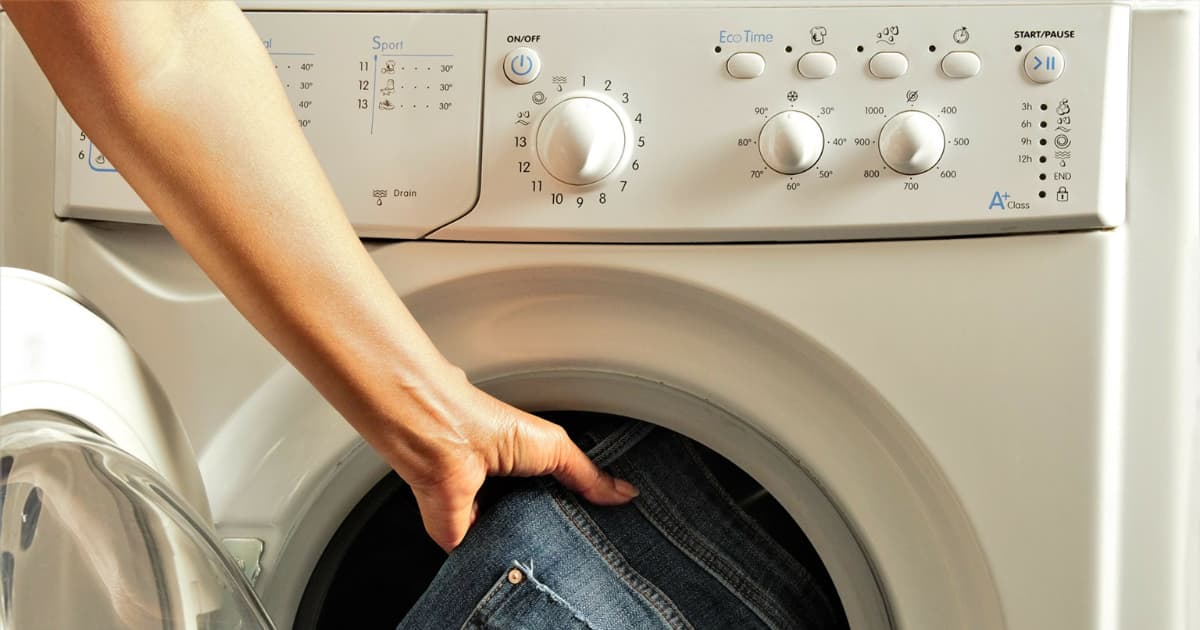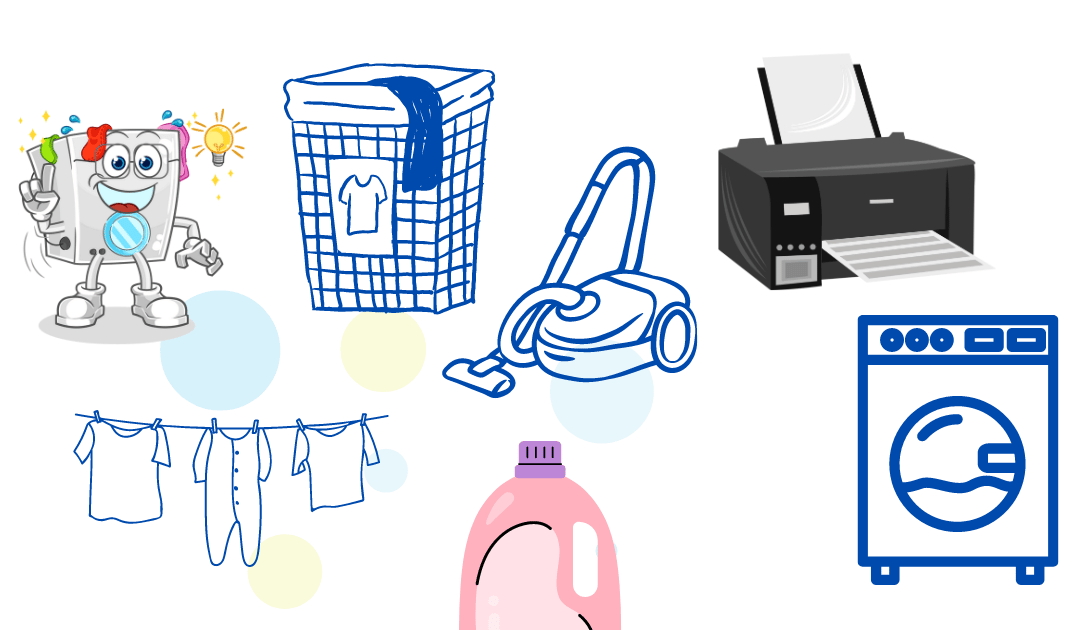The Allure of the Laundry Business
India, with its bustling Growth in Metro Cities centers and ever-growing middle class, has seen a surge in demand for professional laundry services.
The convenience of dropping off a bag of dirty clothes and receiving them clean, crisp, and neatly folded is a luxury many are willing to pay for.
But what does it take to start a successful laundry business? Beyond the allure of fresh linen and the scent of fabric softeners, lies the backbone of any laundry venture: the equipment. Dive in to discover the essentials of setting up your very own dry cleaning business.
Introduction
The potential of the laundry industry in India is vast, with the Growth of Metro Cities and changing lifestyles driving the demand. With the right equipment and strategy, entrepreneurs can tap into this lucrative market.
Anecdote: Consider Ramesh, who started with a single High-Performance Washing Machine in a small shop in Mumbai.
Today, he owns a chain of laundry outlets, all thanks to his strategic investment in the Best Commercial Washing Machines and understanding of Laundry Business Operations.
Washing Machines: The Core of Your Business
Choosing the right washing machine is crucial. Whether you opt for a Front Load Commercial Washer or a Commercial Stacker Washing Machine, ensure it’s energy-efficient. Energy-Efficient Laundry Machines not only save on electricity bills but also reduce the carbon footprint.
- High-Efficiency Washing Machines: Consumes less water and detergent.
- Front Load Washing Machine: Offers thorough cleaning and is gentle on fabrics.
- Best Commercial Washing Machine: Prioritize durability and capacity.
Dry Cleaning: A Step Above Regular Laundry
Dry cleaning offers a premium service, attracting a higher price point. Having a solid Dry Cleaning Business Plan and understanding the nuances of chemicals and fabrics can set you apart from competitors.
Ancillary Tools and Equipment
It’s not just about the machines. Items like Laundry Baskets and packaging materials play a pivotal role in streamlining operations and enhancing customer experience.
Considering a Franchise?
For those unsure about starting from scratch, considering a Laundry Franchise Investment might be a wise choice. It offers the advantage of a recognized brand and proven business strategies.
Starting a laundry business in India is a promising venture. With the right equipment, a clear business plan, and an understanding of the market, you can establish a successful enterprise.
Remember, it’s not just about offering the Best Laundry Services or Best Dry Cleaning Services; it’s about understanding the needs of your customers and delivering consistently.
2. The Importance of Equipment in the Laundry Business
In the bustling world of laundry services, especially in a diverse market like India, the equipment you choose can make or break your business.
The right machinery doesn’t just wash clothes; it enhances the overall efficiency of your operations and plays a pivotal role in ensuring customer satisfaction.
Imagine a scenario where a customer brings in a cherished piece of clothing, only for it to be returned with damages due to substandard equipment.
Not only does this lead to a loss of that customer, but it can also harm the reputation of the business. On the other hand, a High-Performance Washing Machine can ensure that clothes are cleaned thoroughly without causing any damage, leading to satisfied customers who return time and again.
However, while it’s tempting to invest in the most advanced machinery, it’s crucial to strike a balance. The best equipment for your business is one that offers quality performance while also being cost-effective.
After all, a Front Load Commercial Washer might offer excellent cleaning, but if its operational costs are too high, it might not be the best choice for a startup. Therefore, understanding the balance between quality and cost-effectiveness is paramount.
How to choose the right equipment for my laundry business?
Start by assessing your target market and understanding their needs. Research different types of machines, considering factors like capacity, energy efficiency, and operational costs. It’s also beneficial to consult with existing laundry business owners or join industry forums to gain insights.
What is the impact of using substandard equipment in a laundry business?
Using substandard equipment can lead to several issues. Firstly, it can damage customers’ clothes, leading to dissatisfaction and loss of trust. Secondly, these machines might require frequent repairs, leading to operational downtimes and increased maintenance costs.
Download Your Free
Complete Local SEO Strategy
Download our comprehensive Local SEO Strategy designed exclusively for Laundry Solutions and Business! Discover the proven tactics to boost your online visibility, Grow Revenue and Get more local customers from search engines for FREE

Washing Machines: The Heart of the Operation
In the dynamic realm of laundry services, the washing machine stands as the undisputed champion. It’s the workhorse, the primary tool, the very essence of the operation. But not all washing machines are created equal.
Understanding the different types and their unique benefits can significantly impact the efficiency and profitability of your laundry business.
Different Types of Washing Machines and Their Benefits
Front Load Washing Machines: Known for their efficiency, these machines consume less water and detergent.
Their horizontal drum rotation ensures a thorough and gentle wash, making them ideal for delicate fabrics. Moreover, many Front Load Commercial Washers come with advanced features like steam wash and variable spin speeds.
Top Load Washing Machines: These are traditionally more common in households. They are generally easier to load and might be a bit more affordable than their front-loading counterparts. However, they might consume more water and energy.
Commercial Stacker Washing Machines: A space-saving solution, these machines have a washer and dryer stacked on top of each other. They are particularly beneficial for establishments with limited space but require both washing and drying capabilities.
Considerations When Choosing a Washing Machine
While the type of machine is crucial, other factors play an equally significant role in the decision-making process:
- Size: Depending on the space available in your establishment, choose a machine that fits comfortably and allows for easy maintenance.
- Load Capacity: Assess the average load your business will handle daily. A larger capacity machine might be more efficient for bulk loads, but it also consumes more power and water.
- Energy Efficiency: An Energy-Efficient Laundry Machine can significantly reduce operational costs in the long run. Look for machines with higher energy ratings.
- Technology: Modern machines come with advanced features like automatic detergent dispensers, multiple wash cycles, and smart controls. While they might be pricier, they can enhance the washing experience and customer satisfaction.
How do I determine the right load capacity for my laundry business?
Start by estimating the average number of clothes you’ll receive daily. For a small-scale operation or a startup, a medium-capacity machine might suffice.
However, for larger operations or commercial establishments, investing in a higher capacity machine can be more efficient.
What is the significance of energy ratings in washing machines?
Energy ratings indicate the efficiency of a machine. A higher energy rating means the machine consumes less power for its operations, leading to lower electricity bills.
In the long run, an energy-efficient machine, can lead to significant savings and is also environmentally friendly.
Dryers: Ensuring Quick and Quality Service
While washing machines are the heart of a laundry operation, dryers are its pulse. They ensure that clothes not only come out clean but also dry and ready to wear or fold.
A good dryer doesn’t just remove moisture; it does so while preserving the fabric’s quality and integrity.
Importance of a Good Dryer
Imagine handing over a beautifully washed garment, only for it to be returned with complaints of shrinkage or damage due to improper drying.
A high-quality dryer ensures that fabrics are dried at optimal temperatures, preserving their texture and preventing issues like shrinkage or color fading.
Moreover, in a business where turnaround time can be a unique selling point, a fast and efficient dryer can significantly enhance customer satisfaction.
Factors to Consider When Choosing a Dryer
- Gas vs. Electric: Gas dryers tend to heat up faster and are often more energy-efficient in the long run, but they require a gas line connection. Electric dryers, on the other hand, might have higher operational costs but are generally easier to install and maintain.
- Vented vs. Ventless: Vented dryers expel the hot and moist air outside through a vent, making them more common in commercial setups. Ventless dryers, however, condense the moisture into water and collect it in a reservoir or drain it out. They are more flexible in terms of placement but might take longer to dry clothes.
- Capacity: Just like washing machines, the capacity of your dryer should align with your business’s daily load. A larger capacity dryer can handle bulk loads, ensuring quicker turnaround times.
How do I decide between a gas and an electric dryer for my laundry business?
Consider factors like installation feasibility, operational costs, and drying speed. If you have easy access to a gas line and are looking for faster drying times a gas dryer might be ideal.
If installation flexibility and ease of maintenance are priorities, an electric dryer could be a better choice.
What is the advantage of using a ventless dryer?
Ventless dryers offer greater flexibility in terms of placement since they don’t require an external vent. This makes them ideal for locations where venting to the outside is challenging.
Additionally, they are more energy-efficient as they recycle the heat they produce.

Pressing Equipment: Giving Clothes the Perfect Finish
Once clothes are washed and dried, the final touch that elevates the quality of service in a laundry business is the finish. And that’s where pressing equipment comes into play.
A well-pressed garment not only looks crisp and professional but also speaks volumes about the attention to detail and care provided by the laundry service.
Introduction to Various Pressing Equipment
- Irons: The traditional tool for pressing, irons are versatile and can be used for a variety of fabrics. Modern irons come with adjustable temperature settings, steam options, and non-stick plates to ensure a smooth glide over garments.
- Steam Presses: These are larger machines designed to press clothes between two heated plates. They are efficient, especially for bulk orders, and provide a uniform finish. Steam presses are particularly useful for linens and garments that require a crisp appearance.
- Ironing Tables: These are specialized tables designed to support the ironing process. They often come with suction features to hold the fabric in place and may have built-in steam features.
Importance of Steam Quality and Temperature Control
Steam plays a pivotal role in the pressing process. The right amount of steam can relax fabric fibers, making it easier to press and resulting in a smoother finish.
However, the quality of steam and the temperature at which it’s delivered are crucial.
Poor steam quality can leave garments damp or cause water spots, while incorrect temperatures can damage delicate fabrics.
Modern pressing equipment often comes with adjustable settings, allowing operators to choose the right steam intensity and temperature for each garment type.
How do I ensure the right steam quality in my pressing equipment?
Regular maintenance and cleaning of your pressing equipment are essential. Ensure that the water used is of good quality; using distilled or de-mineralized water can prevent mineral buildup.
What is the advantage of using a steam press over a traditional iron?
A steam press offers a larger pressing surface and can handle bigger garments or multiple small items at once. It provides a uniform finish and is especially efficient for bulk orders. Steam presses are faster and more consistent for general pressing needs.
Specialized Equipment: Meeting Diverse Needs
While washing machines, dryers, and pressing equipment form the core of a laundry business, the nuances of customer demands often require specialized tools.
These pieces of equipment, though not always central to operations, can significantly enhance the range and quality of services offered, setting a business apart from its competitors.
Introduction to Various Specialized Equipment
- Stain Removal Machines: Stains can be stubborn, and not all of them are treated equal. A dedicated stain removal machine uses specific chemicals or treatments to target different types of stains, ensuring garments return to their pristine condition.
- Garment Conveyors: Especially useful for larger operations or dry-cleaning services, garment conveyors help in organizing and retrieving clothes efficiently. They maximize space, reduce manual handling, and ensure that garments remain wrinkle-free and ready for pickup.
The Role of Specialized Equipment
Specialized equipment caters to the unique demands of customers. For instance, a customer might come in with a cherished white dress with a red wine stain.
While a regular wash might not do the trick, a stain removal machine can work wonders. Similarly, for businesses that handle a large volume of clothes daily, manually sorting and retrieving garments can be time-consuming.
A garment conveyor streamlines this process, ensuring quick and efficient service. In essence, while they might represent a higher initial investment, specialized tools can enhance service quality, customer satisfaction, and operational efficiency.
How to decide if my laundry business needs specialized equipment?
Assess the specific demands of your customer base and the volume of your operations. If you frequently encounter challenging stains or handle a large number of garments daily, investing in specialized equipment like stain removal machines or garment conveyors might be beneficial.
What is the advantage of using a garment conveyor over traditional storage methods?
Garment conveyors optimize space, allowing for the storage of a large number of garments in a compact area. They also reduce manual handling, minimizing the risk of misplacing or damaging clothes.
With automated retrieval systems, they ensure quick and efficient service, enhancing customer satisfaction.
Ancillary Tools: The Unsung Heroes
While the spotlight often shines on the primary machines and equipment in a laundry business, the success of operations also hinges on the smaller, ancillary tools.
These tools, though seemingly trivial, play a pivotal role in ensuring smooth operations, enhancing customer experience, and maintaining the quality of service.
Laundry Business Equipment List
Essential laundry Equipment Checklist
Importance of Hangers, Laundry Carts, and Packaging Materials
- Hangers: They are not just tools to hang clothes. Quality hangers ensure that freshly pressed garments remain wrinkle-free and maintain their shape. Different garments require specific types of hangers, from padded ones for delicate fabrics to sturdy ones for heavy coats.
- Laundry Carts: Especially in larger operations, transporting large volumes of clothes can be a challenge. Laundry carts streamline this process, ensuring efficient movement of garments from one station to another without causing damage.
- Packaging Materials: The final presentation matters. Quality packaging materials not only protect the cleaned and pressed garments but also provide a professional touch, enhancing the overall customer experience.
The Role of Software and Point-of-Sale Systems
In today’s digital age, software solutions have become indispensable in streamlining operations. A robust Point-of-Sale (POS) system can manage customer data, track orders, handle billing, and provide insights into business performance.
Additionally, specialized laundry management software can assist in inventory management, employee scheduling, and customer communication. Integrating technology into operations not only enhances efficiency but also provides a competitive edge in the market.
How to choose the right Point-of-Sale system for my laundry business?
Start by assessing the specific needs of your business. Do you require inventory management? Is customer relationship management crucial for your operations? Once you’ve listed down your requirements, research various POS systems that cater to the laundry industry.
Look for systems that are user-friendly, scalable, and offer good customer support. It’s also beneficial to read reviews and perhaps even get a demo before making a decision.
What is the advantage of integrating laundry management software into my operations?
Laundry management software is designed to streamline various processes, from order tracking to employee management. By automating many manual tasks, such software reduces errors, enhances efficiency, and growing your business.
Understanding Equipment Efficiency and Maintenance
Investing in top-notch laundry equipment is just the beginning. The real challenge lies regular maintenance and timely upgrades are not mere operational formalities; they are the backbone of a thriving laundry business, ensuring consistent service quality and customer satisfaction.
The Significance of Regular Maintenance and Timely Upgrades
Regular maintenance ensures that your equipment operates at optimal efficiency, reducing the risk of unexpected breakdowns that can disrupt business operations.
It also extends the lifespan of the machines, ensuring that you get the maximum return on your investment. On the other hand, timely upgrades, while often seen as an additional expense, can lead to long-term savings.
Newer models tend to be more energy-efficient and come with advanced features that can enhance service quality and operational efficiency.
Real-life Example: A Business That Thrived Due to Its Emphasis on Equipment Care
Consider the story of “Clean & Shine,” a laundry business in Bengaluru. When they started, they invested in the best available equipment.
But what set them apart was their rigorous maintenance schedule. Every machine was regularly checked, cleaned, and serviced. As technology advanced, they didn’t hesitate to upgrade, ensuring they always offered the best service.
The result? Not only did their equipment rarely face downtimes, but the quality of their service also became a benchmark in the city. Today, “Clean & Shine” has multiple outlets and a loyal customer base, all thanks to their emphasis on equipment care.
How to set up a maintenance schedule for my laundry equipment?
Begin by understanding the manufacturer’s guidelines for each piece of equipment you own. These guidelines often provide a recommended maintenance timeline.
Set up monthly, quarterly, and yearly maintenance tasks. It’s also beneficial to maintain a logbook to track maintenance activities and any issues that arise.
What is the importance of timely upgrades in the laundry business?
Timely upgrades ensure that your business remains competitive and efficient. Newer equipment models often come with advanced features, better energy efficiency, and improved performance.
Conclusion: Beyond Equipment – The Vision and Passion
As we’ve journeyed through the intricacies of the laundry business, one thing stands clear: while equipment forms the backbone, the soul lies in understanding its potential and leveraging it effectively.
The machines, tools, and software are mere instruments; the real magic lies in the hands of the entrepreneur who wields them.
Success in the laundry business isn’t just about having the best machines or the most advanced software. It’s about recognizing the role of each tool, understanding its potential, and integrating it seamlessly into the business’s vision.
It’s about the passion to provide impeccable service, the commitment to continuous learning, and the drive to innovate and adapt.
So, to every aspiring entrepreneur reading this, remember: the laundry business, like any other, is a blend of art and science. Equip yourself with knowledge, arm yourself with the best tools, but above all, fuel your journey with passion and vision.
The road to success might have its challenges, but with determination and the right approach, the destination is well within reach.
Take the plunge. The world of laundry awaits your unique touch.
How to ensure that I’m not just relying on equipment in my laundry business?
Start by understanding your customer’s needs and expectations. Engage with them, gather feedback, and continuously strive to improve your services.
While equipment is essential, personal touch, customer service, and continuous improvement are what will set you apart.
What is the key to long-term success in the laundry industry?
The key lies in balancing technology with personal touch. While having the best equipment and software is crucial, understanding your customer’s needs, and providing impeccable service.
Building trust, maintaining consistency, and adapting to changing market dynamics are the pillars of long-term success.
Download Free
Google Ads PPC Strategies Tailored for Laundry Industry
Whether you are starting to research Google Ads (Pay-per-Click) or are ready to set up your first campaign, use these workable and proven strategies to get started. Scale up your lead generation efforts and achieve unparalleled results. Reach Idea Customers, Convert Clicks into Customers – Let's Optimize Google Ads Campaign Today!
Promote Your Laundry Business Online with Proven Online Marketing Strategies!
Unlock the Secrets of Google Ranking Optimization Strategies , Fast-Track Your Laundry Business Success with Mastermind Mr. Ram
Related Articles
Which AI Tools Are Used by Top SEO Agencies in the AI Transformation Era?
AI isn’t just disrupting SEO — it’s rebuilding it from the ground up. The world’s top SEO agencies are no longer relying on manual spreadsheets or...
Hire LLM Optimized SEO Service & Rank Faster | Get Yours
Every single day you postpone, your competitors are capturing market share in a new arena: AI Answer Engines. The digital landscape has fundamentally...
LLM Retrievable Content Creation Services: Future-Proof Your SEO with AI Agent-Ready Content
As search evolves beyond simple keyword matching, traditional SEO strategies are becoming obsolete. LLM retrievable content creation services are...
AI Powered SEO Services: Transform Your Digital Visibility and Rank Smarter
In today's fast-paced digital landscape, businesses struggle with traditional SEO methods that often fall short in efficiency and...
AI Powered Marketing for Laundry, Dry cleaners Services Business with Smart AI Automation
Why Read This? AI Marketing Is Changing Laundry Businesses Are you a laundry or dry cleaning business owner looking to grow faster in today’s AI era?...
AI-Driven SEO Services: A Game Changer for Laundry & Dry Cleaning Businesses
AI-Driven SEO Services: How Laundry & Dry Cleaning Businesses Win Online Imagine a customer urgently needing their clothes cleaned. They pull out...
Disclaimer: The brands / costs / Information mentioned in this blog are the recommendations provided by the author. FlexWasher-Laundry Website does not claim to work with these brands / represent them / or are associated with them in any manner. Investors and prospective franchisees are to do their own due diligence and in-depth research before investing or Purchase in/on a business/Product/Services at their own risk and discretion. FlexWasher-Laundry Website or its Directors disclaim any liability or risks arising out of any transactions that may take place due to the information provided in this blog.


